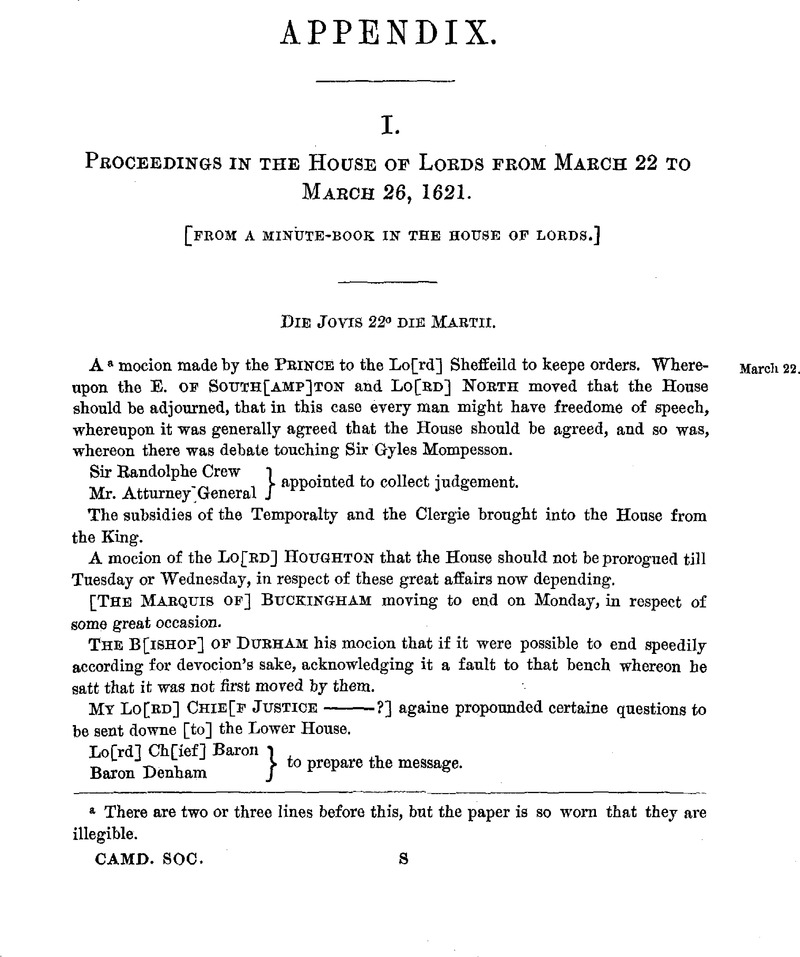No CrossRef data available.
Article contents
I. Proceedings in the House of Lords from March 22 to March 26, 1621
Published online by Cambridge University Press: 24 December 2009
Abstract

- Type
- Appendix
- Information
- Copyright
- Copyright © Royal Historical Society 1871
References
page 129 note a There are two or three lines before this, but the paper is so worn that they are illegible.
page 130 note a The paper is torn, see L. J. iii. 63.
page 130 note b Churchill, I suppose ; but, though the letters in brackets are not quite distinct, the rest of the word is plain.
page 130 note c The paper is torn, so that there may have been a short word after “had.”
page 131 note a 1 i.e. of the recess.
page 131 note b The Christian and surname and the preceding “Fr.” are inserted above the line.
page 131 note c Mompesson.
page 131 note d to may, MS.
page 132 note a Here the book is turned round, and the remainder of the MS. is written from the other side.
page 132 note b Hansby.
page 133 note a no nomeans, MS.
page 133 note b Elsing.
page 134 note a Mompesson had valued the whole as concealed land at 10s. a year, according to L. J. iii. 70. The entry is the first in Mompesson's book in the House of Lords’ MSS and stands thus: “Surr. JTirma totius illius parcelli terrse vastte cum pertinentibus vocatse Peazemarshe, jacentis in parochia de Godlymen in comitatu Surrey, per annum x s.”
page 135 note a To pardon.
page 136 note a This is marked off by a line from Sheffield's speech, and there is another line after “contries,” at the end of the paragraph.
page 136 note b Perhaps this means, though his degradation is not to be remitted to himself, and he is to be outlawed, it is to be mentioned in the sentence that it is left to the King to remit the banishment in part.
page 136 note c Preceded by the words deleted “if he returne and taken.”




